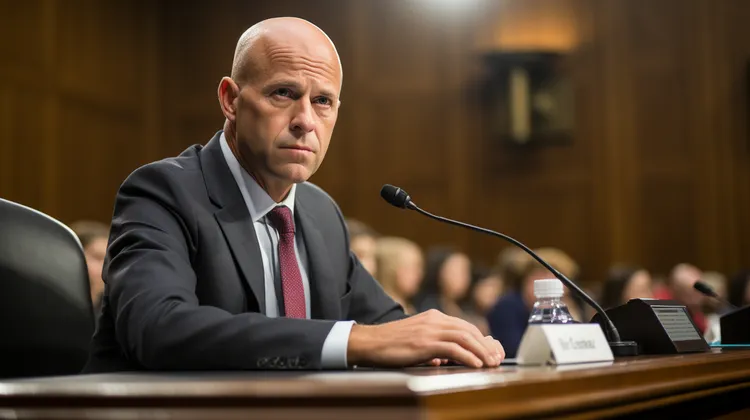Investment banks are forecasting that the Federal Reserve’s rate hike cycle has peaked, signaling a possible slowdown in the US economy. The Federal Reserve has been steadily increasing interest rates over the past few years, tightening monetary policy to prevent an overheating economy. Investment banks now see signs of a plateau in the rate hike cycle, indicating that the central bank may have reached its peak.
One of the reasons behind this forecast is the current economic conditions in the United States. While the economy has been strong, there are signs of a potential slowdown, such as weakening global growth and ongoing trade tensions. These factors have led investment banks to believe that the Federal Reserve will pause its rate hikes to assess the impact of these risks on the US economy.
Another factor contributing to this prediction is inflation. Investment banks suggest that inflationary pressures may have reached a peak, which would give the Federal Reserve less incentive to continue raising rates. With inflation under control, the central bank may choose to adopt a more patient approach, closely monitoring economic data before making any further rate adjustments.
Investment banks also look at other central banks around the world for guidance. Many countries have either paused or lowered their interest rates in response to global economic uncertainties. The European Central Bank, for example, has taken a dovish stance, signaling that they are unlikely to raise rates in the near future. This trend indicates a potential global shift towards easing monetary policy, which the Federal Reserve may follow.
Another key consideration for investment banks is the impact of rate hikes on financial markets. Higher interest rates tend to increase borrowing costs for consumers and businesses. This can curb spending and investment, potentially weighing on economic growth. Investment banks are closely monitoring these effects, as any significant slowdown in the economy could prompt the Federal Reserve to halt rate hikes.
Investment banks are also analyzing the labor market. The United States has experienced strong job gains and record-low unemployment rates recently, which are indicators of a robust economy. If employment growth were to slow or stall, it could be a signal for the Federal Reserve to pause its rate hikes. Investment banks are watching these developments closely, as they could influence the central bank’s decisions on monetary policy.
Some analysts believe that the Federal Reserve may even consider cutting rates in the near future, depending on how the economy evolves. Although this possibility remains speculative, it suggests that investment banks are expecting a potentially more accommodative monetary policy in the coming months.
It is important to note that investment bank forecasts are based on their own analysis and may not always accurately predict the actions of the Federal Reserve. The central bank could surprise the market with unexpected rate hikes or choose to disregard the concerns expressed by investment banks. The Federal Reserve’s decisions will be determined by its assessment of the economic conditions and its mandate of maintaining price stability and maximum employment.
Investment banks are suggesting that the Federal Reserve’s rate hike cycle has peaked, anticipating a possible slowdown in the US economy. Factors such as weakening global growth, ongoing trade tensions, inflation reaching a peak, and a potential shift towards easing monetary policies by other central banks have contributed to this prediction. The impact of rate hikes on financial markets and developments in the labor market are also being closely watched. While investment banks’ forecasts may not always accurately reflect the Federal Reserve’s actions, their insights provide valuable perspectives on the direction of monetary policy.




It’s essential to watch for potential shifts in the US economy. The analysis from investment banks helps us stay informed! 🌟🔎
I don’t trust these investment banks. They got us into the 2008 financial crisis, and now they think they can predict the future?
Investment banks are always trying to control the narrative and manipulate the market. It’s sickening.
Even though investment bank forecasts may not always be accurate, they offer different perspectives that help us gauge the direction of monetary policy. Valuable insights! 🌟💭
It’s fascinating how factors such as weakening global growth and ongoing trade tensions can impact the Federal Reserve’s decisions. Such a complex system! 🌎💼
I don’t want to hear another word from these investment banks. They’re just trying to protect their own interests and keep the economy under their control.
Investment banks are always flip-flopping on their predictions. How can we trust them when they’re constantly changing their minds?
I can’t believe investment banks are still allowed to manipulate the market. It’s time for more regulation to prevent these false predictions.
Investment banks’ focus on the labor market adds another layer of understanding to the Federal Reserve’s decision-making process. Providing valuable insights!
Investment bank forecasts are always subject to uncertainty. The Federal Reserve might surprise the market or disregards their concerns. But the insights are valuable! 💡💼